A museum so fascinating that you lose sense of time
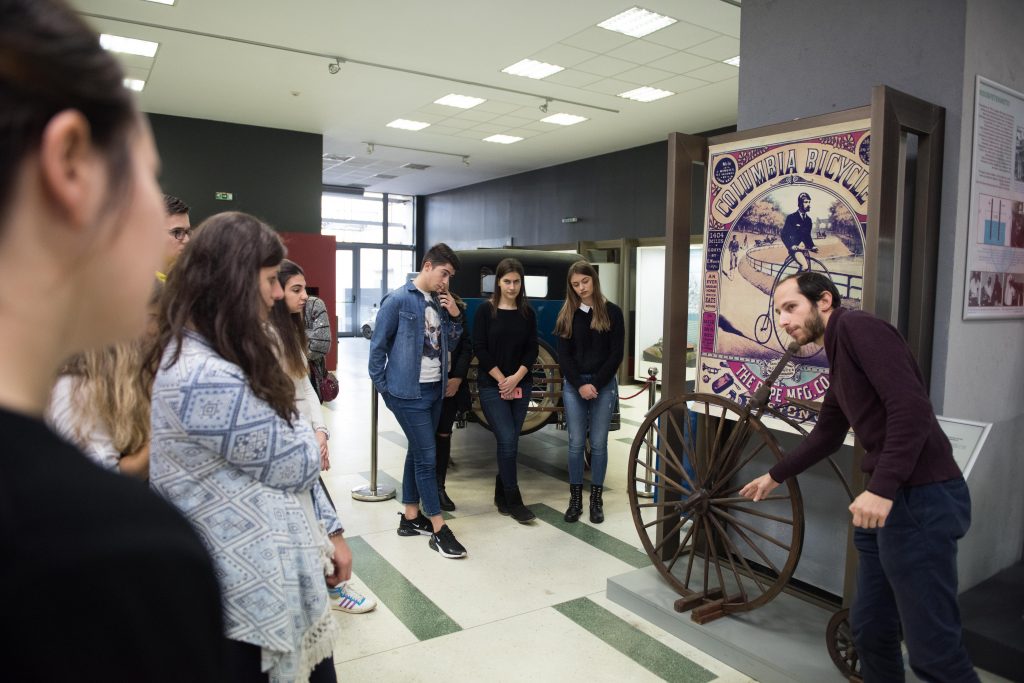
– Come on, think about it.
– what else?
– Great, more ideas?
– I was thinking about the young visitors – wouldn’t it be a good idea to make a calendar with important dates for science that could be connected to events in the museum…
These are the kinds of conversations you could hear at the National Polytechnic Museum back in November 2019. It is a quite lively atmosphere – a group of students have gathered to help with a few challenges that the museum faces: how to attract new audiences and visitors, how to become an attractive workplace for young experts and in general – how to be more visible and recognizable.
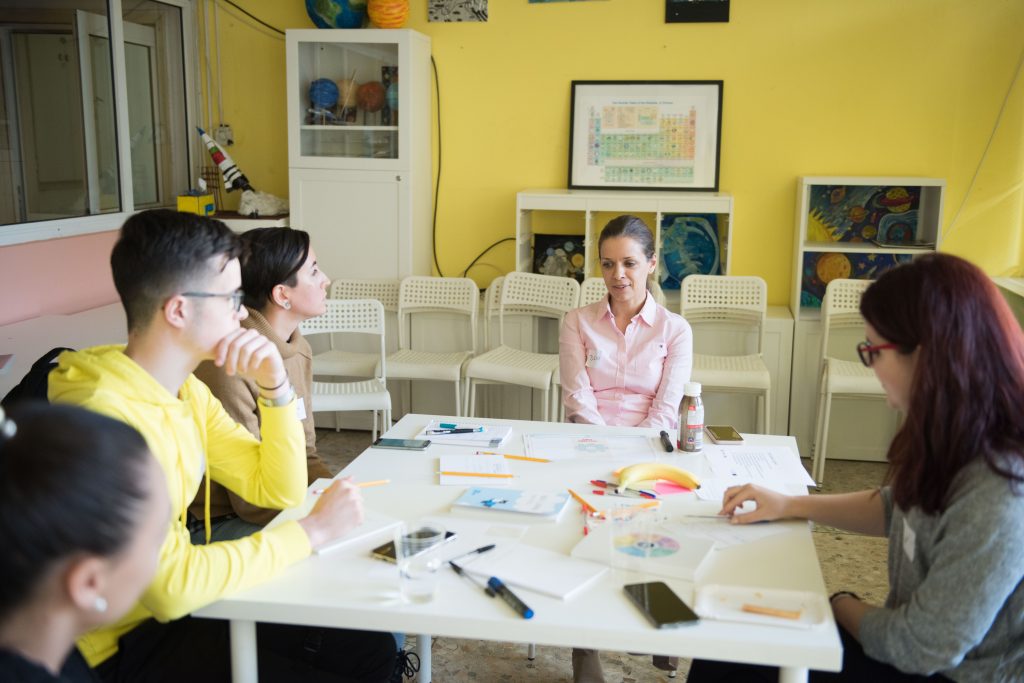
So far, volunteers have come on many occasions with the help of TimeHeroes’ website, mainly for initiatives that keep the mind at rest: such as renovating the yard, helping with some of the workshops or refreshing the children’s center.
However, this occasion is different; it is a pro bono workshop to support the museum, organized by TimeHeroes and the University of National and World Economy (UNWE) as part of the BEESE Project. Its mission is twofold: first, to increase young people’s job opportunities by confronting them head-on with the problems of non-profits and making them think practically. Second, to enable places like this museum to draw inspiration from fresh and unencumbered minds.
This is happening with the help of three mentors – Deni Shiligarska, who works at VMware Bulgaria, has a degree in Urban Planning, and is keenly interested in urban spaces, Polly Zaharieva, who is one of the main drivers of the TOM Bulgaria formats, PEOPLE who usually don’t speak in front of PEOPLE (ХОРА, които обикновено не говорят пред ХОРА) and the FotoFabrika festival, as well as Metodi Terziev – director of betahaus Sofia, and a graduate of the University of Basel in Switzerland.
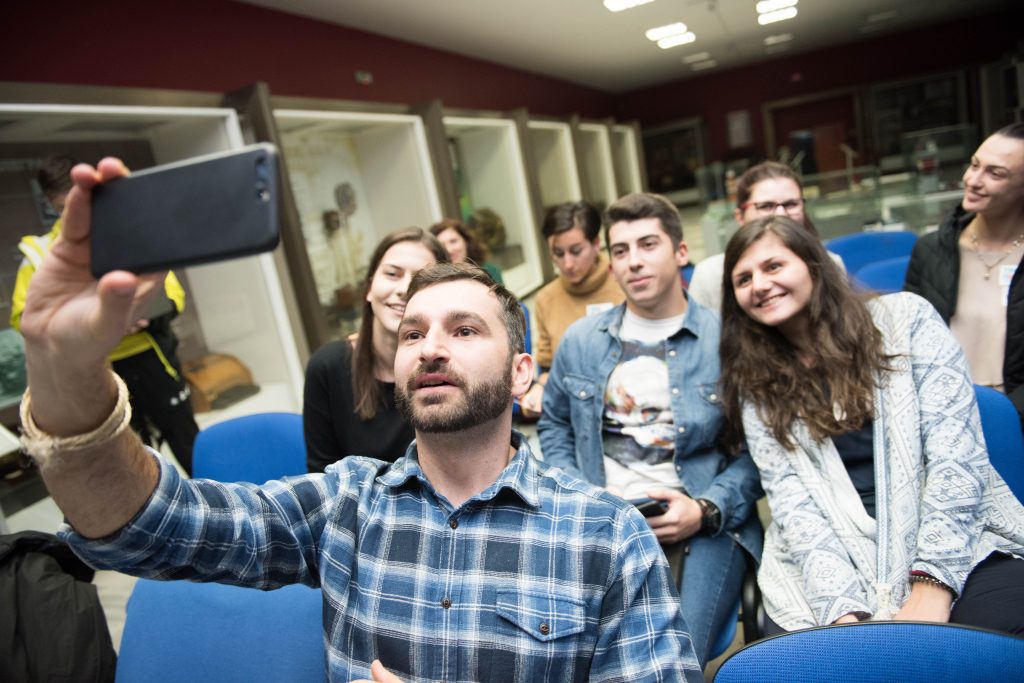
All of them took part in this pro bono workshop to help the museum with developing its cause – to preserve the history of Bulgaria’s technical and scientific development. Here, you can see cars from the beginning of the 20th century, a wooden bicycle, radios, TVs, clocks from the royal palace, the camera used to film the first TV show in Bulgaria, the first Bulgarian space device…
“Did you know that in other countries, technical museums are the most visited ones?”, asks Madlen Yaneva – the public relations expert of the team, which is the driving force of the museum.
Today, almost two years after the workshop, we meet again to catch up. Next to her sits Vasil Makarinov, who has been working as curator of the Polytechnic Museum for seven years. Back in 2014, he had just graduated art history and came here just for an internship, but life had other plans for him.
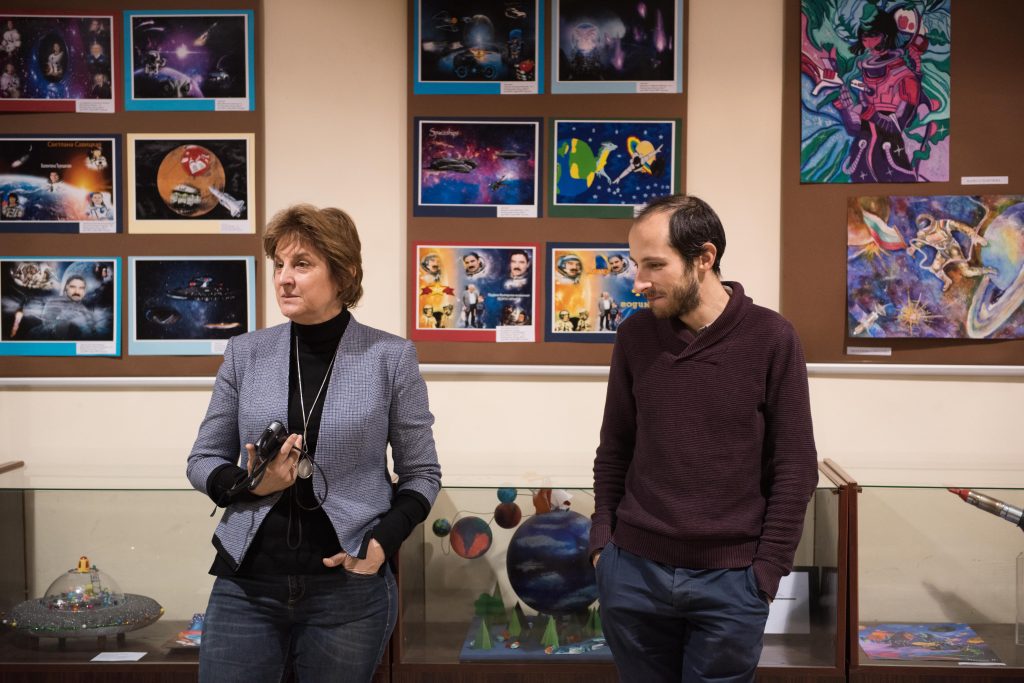
“We applied for the workshop with the greatest pleasure: the university students are the group we miss the most. It turned out that they were entering the museum for the first time, but their suggestions were very good. We were impressed the most by their idea for a “polytendar” – a calendar of events aimed at young people. We took it very seriously and even started implementing some of them”, says Madlen.
Before the pandemic put life on hold, the museum managed to organize two initiatives, one in January and one in February 2020. The first was an architectural evening hosted by Vasil, and the latter – a Valentine’s Day event that combined wine and chemistry, and included some hot experiments. Literally.
But these are not the only changes here. As a result of the suggestions from the workshop, the museum also changed its presence on social networks, and started to speak more “playfully” and informally. The result: a significant amount of new followers.
The museum’s site also has its own blog, which has four categories, namely Museological Problems, History of Technology, From the Funds of NPTM, and Poly and Techno for Children.
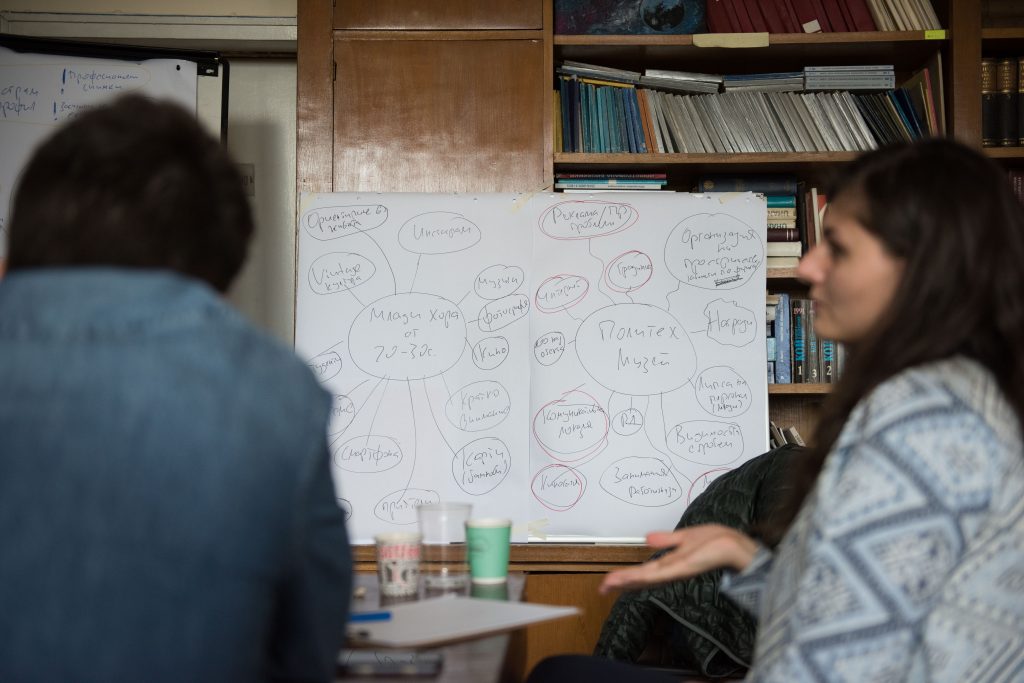
All this gives hope to the team, which grew with two more people after the workshop: two young women who work respectively as a tour guide in the department Exposition and Work with the Public and a fund manager in the Funds department.
However, after the national state of emergency, the museums’ main work – to welcome visitors – was put on hold. “Now, we are trying to resume our activities, but we don’t dare to plan much ahead. Still, the ideas that the students gave us are on the agenda and we keep them in mind.”
Despite the difficult period when the museum is closed, since May the team has seen a serious number of visitations. Vasil explains that this could be due to the fact that when you have been deprived of access to something for too long, you suddenly have an even greater desire to see it with your own eyes.
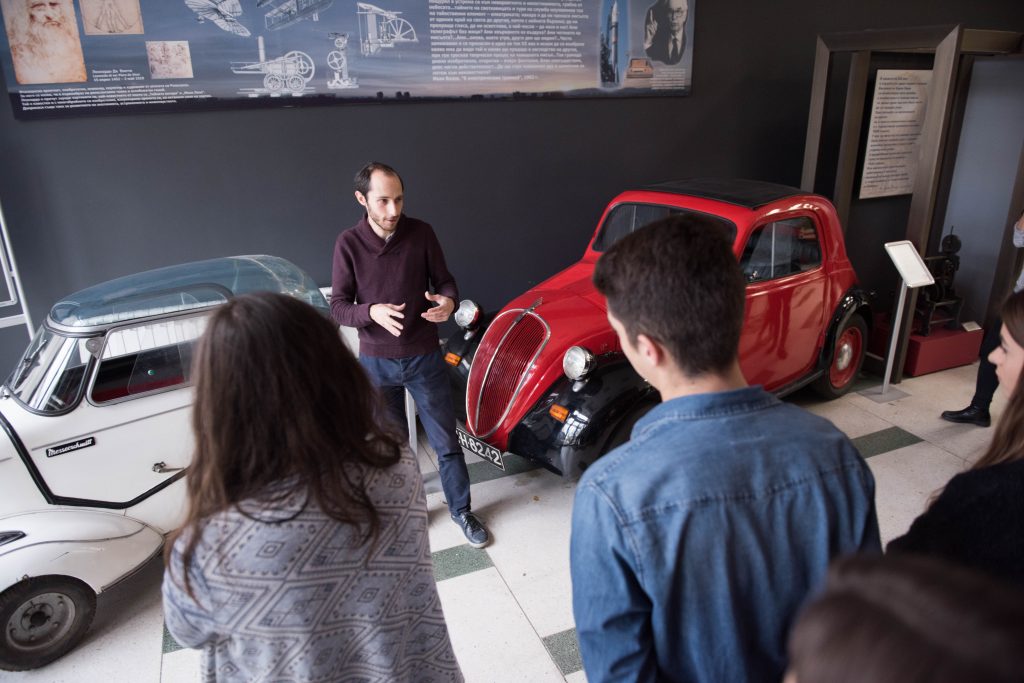
Fortunately, the museum manages to attract extra volunteering hands for various important tasks – to clean the garden, for the Night of Museums, to participate in summer workshops with children.
“Volunteers are our ambassadors. The last time we gave them hats with our logo, and one of the volunteers wrote to say thank you and that she would wear the hat to help with our publicity. This is the best advertisement,” Madlen tells us, adding that she is very careful about people who invest their time here and always tries to meet their expectations.
“We’ve had some interesting cases. For example, there was a girl in 7th grade, who was going to study at a language school, but after visiting here decided to sign up for a math class. Her mother came to us and said, “I don’t understand what happened!”. But it’s true: future engineers and scientists are sometimes formed here,” Madlen recalls.
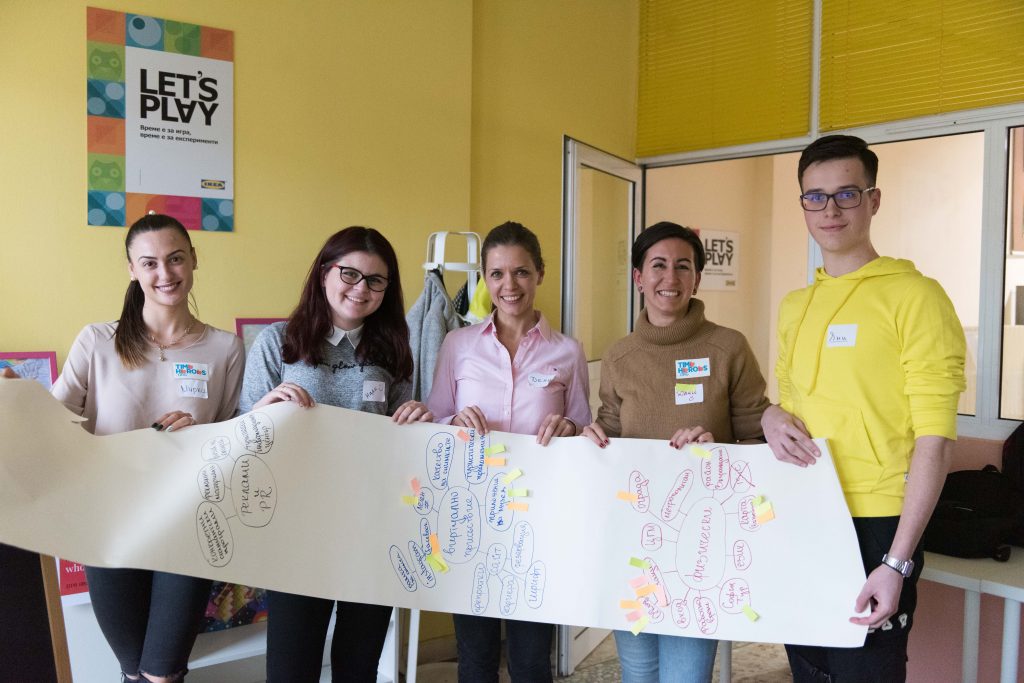
Vasil, inevitably, immediately remembers a similar case: how Ivan, at 6, left the museum with the words: “I will become an engineer!”.
On such days you can hardly forget about all your problems, but they remind you why you should always confront them.
“I want to be optimistic, so I still work here and I keep doing my best to ignite someone in the cause, to attract someone,” says Madlen. When we ask her how she imagines the bright future, she admits that she doesn’t imagine it. But in life, such as in physics, there are laws: first it is important to enlighten the present. After that everything is easier.
—
Photo credit: Iliyan Ruzhin
